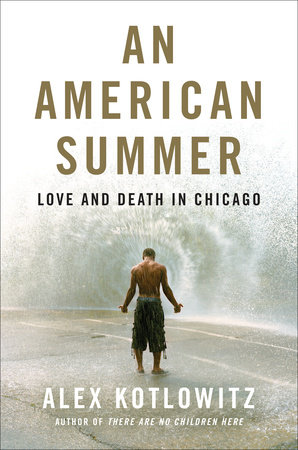Tags
"An American Summer", "Random Family", "There Are No Children Here", Adrian Nicole LeBlanc, Alex Kotlowitz

Eleven years ago, I wrote about a book I had just read that I couldn’t get out of my mind: Random Family: Love, Drugs, Trouble, and Coming of Age in the Bronx (by Adrian Nicole LeBlanc).
“If this book was a novel, readers would probably dismiss it as too chaotic and not believable. But it is in fact a true story, the never ending cycle of living on the edge, the ghetto (largely the Bronx), where the girls get pregnant and the guys sell drugs and go to jail (some of the girls do too.) Somehow, Le Blanc, the author, has gotten inside several families, and the result is you live with them, with all their turmoil, rage, love, and loyalties. I doubt I have ever read a ‘coming of age’ story as intense and memorable as this one. And I’m sure I will remember it for a very long time.”
Now, there’s another one to call to your attention. This one, An American Summer also is non-fiction and is equally as memorable. Ellen and I went to see and hear the author, Alex Kotlowitz at Politics and Prose’s new Wharf store in southwest DC, and while that hour added to our enjoyment and understanding of the book and its author, the book by itself is one we’ll also remember for a very long time.
Kotlowitz calls it a series of dispatches, but it’s in fact a picture of life on the south and west sides of Chicago, 14 stories, some self contained but all about the same subject: what it is like for children, adolescents, young and older men, and mothers and grandmothers, some who are victims of gun violence. Some are perpetrators of violence.
The author set out to write about the summer of 2013 in this troubled area of Chicago (though he says he could have written a similar book about any one of ten other cities in American that actually have a higher crime rate than Chicago). Like LeBlanc (above) he was able to embed himself in the communities and families and became deeply invested in the lives of his subjects, ones who upended what (he) thought (he) knew.
There’s a bit of Studs Terkel (a mentor and a friend) in his approach as Kotlowitz is able to convey and portray a world that is behind the statistics (1990 to 2010 when 14,033 people were killed here and more than 60,000 wounded). Although his stories all begin in the summer of 2013, many then go back a number of years and then forward for the four more years it took him to present his portrait(s) drawn from these 14 stories. His ability to interview, to listen, to interact, and to write about the violence in these lives and in this part of the city is simply as good as it gets for a writer and for the reader. He helps us begin to understand things most of us don’t know and can’t even imagine.
What is taking place in Chicago, and in other American cities, is complicated. It’s complex. And it’s heart wrenching. It’s about Thomas, Anita, Crystal, Nugget, Eddie, Lisa, Maria, Marcello, and their families and friends. It’s about trauma from one generation to the next. It’s about something called “Complex Loss.” It’s about loneliness and fear. It’s also about resilience and the price of resilience. And it’s about forgiveness as a way to cope and a way to preserve oneself.
Kotlowitz doesn’t give public policy prescriptions nor claim to have answers to what can be done.
But he does humanize people from all sides who live with this daily, weekly, monthly, yearly and decades long violence, and he gives the reader an unvarnished picture of life in these communities.
While he gives no answers, he does go behind the statistics, behind the headlines, and deeply into a world that is out of control.
I suspect you have not read anything quite so revealing as An American Summer.
Put it on your summer reading list. It is nothing like the summer or life most of us will experience this or any other year.

